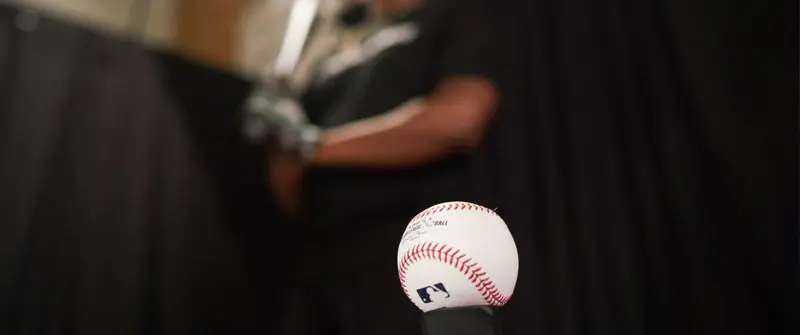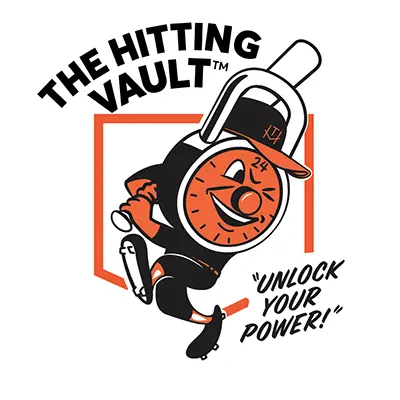Athletes Taking Ownership with Coach Lincoln Martin

Table of Contents
Coach Lincoln Martin knows well that anyone can have an off day. But how your player conducts themselves when things aren’t going according to plan is a fundamental reflection of who they are as an athlete, a teammate, a student, and an individual.
Coaching young players to deal with adversity on and off the field is a key part of player development, and a subject about which Martin has a wealth of experience and passion.
Introducing Coach Martin
Coach Lincoln Martin joined the coaching staff here at The Hitting Vault after a successful professional career as a player with the Baltimore Orioles, followed by 11 years as a scout for the MLB. During his time with the MLB, he discovered and nurtured talent for the Houston Astros and the Miami Marlins. Now he is a highly respected softball coach — and an exciting addition to our team.
With every new player Coach Martin analyzes skill and technique; but more importantly, Martin seeks to instill in them the confidence and discipline that it takes to be a great hitter. “I’m often asked by a lot of people in the industry: how do you get players to hit in game?” he shared with us recently.
His answer is simple: ownership.
Players should be taught how to take ownership of every aspect of their game: from practice to performance. For Coach Martin, getting a player to take ownership of their swing is one of the greatest responsibilities of a hitting coach, as he explains in a recent video.
What does taking ownership mean?
According to Coach Martin, ownership is the essence of responsibility. When we take ownership of something, we announce that we understand what our particular role or task is, and that we alone are responsible for seeing it through to the best of our ability. We become accountable for our actions, and realize that our individual work ethic and attitude affects everyone around us. If something goes wrong, we don’t try to find someone or something to blame: we own it.
Ultimately, when we take ownership of something, we strive to elevate our performance and become a reliable and responsible team player.
Why is taking ownership in softball and baseball important?
Ownership is a fundamental mindset that separates good players from great. It’s vital to living a well-rounded life of responsibility and control, but its ramifications can easily be translated to the field. A player who chooses to blame the weather, the refs, the team, the coach, or the play call will never develop into a great athlete.
If a player consistently views mistakes as outside of their control, they will make no effort to correct their own actions — and continue to make those same errors.
But when a player is accountable for their own actions, they are able to learn and grow.
When a player learns to take ownership, what happens?
When a young player learns how to take ownership of any aspect of their game, they are transformed. The change influences not just their individual skills and technique but their relationship with their coach, their team, and their belief in themselves.
For Coach Martin, owning a swing:
Improves style.
When a player believes that they are in control of their swing, they become more aware of everything that they are doing on the field. “The swing is a movement pattern,” explains Martin. “The way you move aids in how you create timing.” As their swing style improves, the player will become able to recognize the steps they need to take to create power and precision.
Improves self-esteem.
Confidence is important in young players. As a hitter’s swing style improves, so does their belief in their own ability. Self-esteem is built from the inside-out, and as the player develops, they will begin to feel a sense of confidence that does not rely on the expectation of praise or help from someone else.
This shift becomes apparent as the player goes from someone who is told what to do, to someone who is able to step up, solve problems, and work independently. As their self-esteem increases, a player will believe that their swing is their responsibility: something they alone can understand and work on, and something they can take pride in. As Coach Martin illustrates “The swing becomes their swing. Not something you are trying to give them.”
Improves the player/ coach relationship.
Independence in a player is a good thing as it helps to build trust in the player/ coach relationship. It also helps to protect you, as a coach, from overteaching. Encouraging a player to develop their own unique skill set and approach to the game allows the coach to be a part of the puzzle, not an authority figure or leader who can be blamed if something goes wrong. (This is important for a coach’s relationship not just with the players, but with overzealous parents looking to point the finger!)
Improves training habits.
A sense of ownership allows the player to focus on what they need to achieve during practice and encourages them to be proactive in getting there. They begin to prioritize the things they need to work on, and organise their own time to achieve these goals. Ownership creates internal drive. That drive means that training pressure is no longer externally applied, but internally motivated.
Teaches adaptability.
A lot of outside factors can influence a player’s game. A new field, things going on in their personal lives, changes in environment. As a player takes ownership, they become more resilient and able to perform well whatever the circumstances. They adapt to the existing environment rather than expecting the environment to adapt to them. This is particularly important when players are performing under pressure, or when they are being judged and critiqued like at a college showcase.
How can I help my players take ownership?
You want the best for your players, on and off the field. Teaching every athlete how to take ownership will set them up for success, and make them a dependable and valuable part of any team. There are a few simple steps to making this happen:
Set clear and measurable goals.
Tell your players what the ultimate goal is for the entire team, and what you expect from them individually to make this dream a reality. Break down that goal into small, clear, measurable steps that can be followed and practiced, daily, weekly, monthly etc. Remember: it’s about making players feel like a part of something bigger than themselves. Also remember to seek continual input from every member of your team so that everyone is committed to working towards the same result.
Use honest communication.
Always be direct with your players and their parents. False praise and sugar-coating hard truths may seem like the easier, better option at times, but ultimately this style of communication won’t help a rookie who is trying to improve. Honest dialogue will lead to authenticity. Players can often fake confidence and ownership, but in the face of adversity, they will revert to previous bad habits. Foster an environment of trust and encourage athletes to come to you with any concerns that they may have while at practice.
Show confidence in your players.
If you show that you believe in your players, they will begin to believe in themselves. Give members of your team extra responsibilities and credit where credit is due. Always remind them of the end goal, and emphasize that with hard work and perseverance they can achieve everything they set out to do.
Resist the urge to intervene.
Let your players make mistakes! It is only through making mistakes that athletes learn how to avoid repeating them. Encourage the player to become accountable for their actions, and let them learn in their own time. When mistakes are made, encourage reflection and improvement, instead of berating them. This will turn errors into learning opportunities.
Become a part of the puzzle.
Teaching athletes to take ownership fosters initiative, creates an atmosphere of trust, and gives them an “I can” attitude that will prove invaluable throughout life. As a coach, one of your proudest moments will be when a player is able to take control of their swing, and be present and accountable for their actions.
At The Hitting Vault, we provide a complete online hitting system that teaches coaches and players how to unlock their power at the plate, gain a lethal swing, and build confidence. With the Coach Membership you will have 24/7 access to the complete Hitting Vault Program of 100+ training videos, drills and blogs plus exclusive access to THV staff and our private Facebook group.
Consider signing up for membership, and learn more from inspirational coaches like Coach Lincoln Martin.



